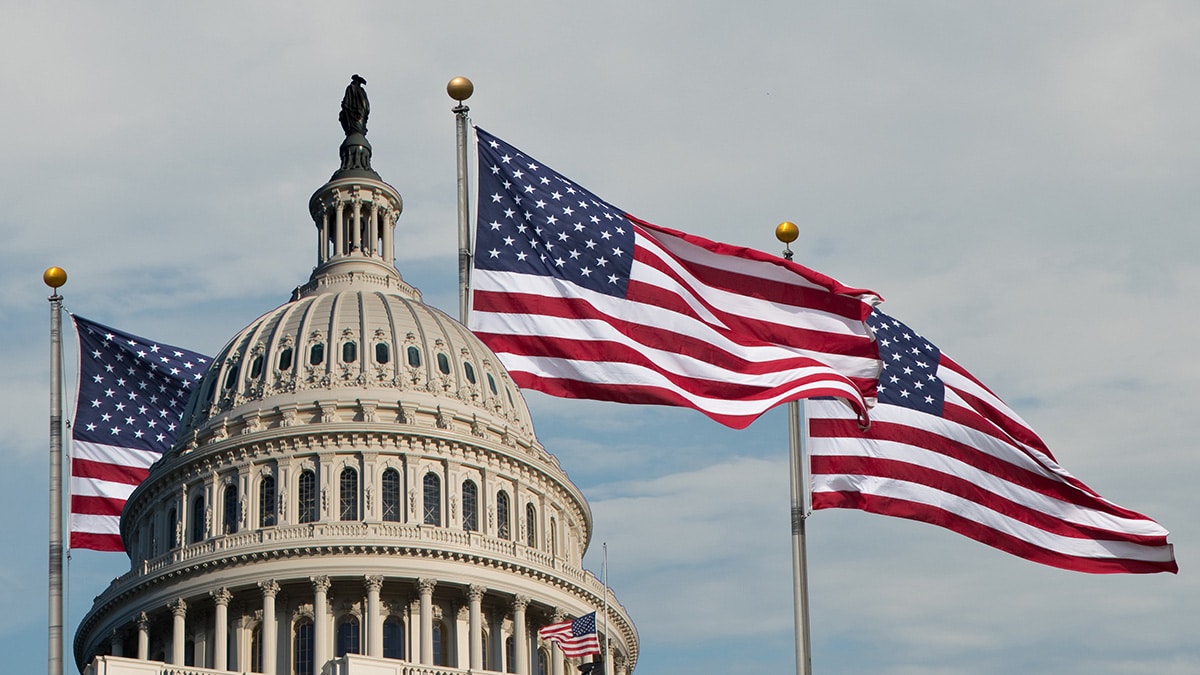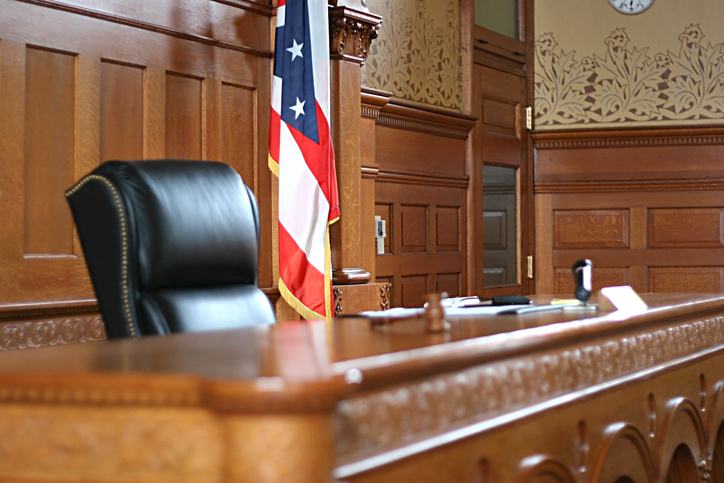What is Defense Contract Fraud?
Defense contract fraud involves deceptive activities by contractors related to military contracts, risking national security and the safety of military missions. This guide enlightens whistleblowers on their rights under the False Claims Act (FCA) and the potential rewards for reporting such malpractices.
May 9, 2025

This information is provided for educational purposes only by Kohn, Kohn & Colapinto and does not constitute legal advice. No attorney-client relationship is created by accessing this content. Laws and regulations may change, and this material may not reflect the most current legal developments. If you believe you have a whistleblower claim, consult a qualified attorney to discuss your specific circumstances.
Defense contract fraud refers to dishonest activities by contractors or subcontractors related to military service contracts. The primary motive behind such fraud is to mislead government entities to gain improper revenues, which greatly affects taxpayers and military personnel.
However, this type of fraud isn’t solely about money. The effects of such dishonest actions can impact national security and the safety of military missions, especially if the equipment is below the required standard.
Defense contract fraud is a dishonest practice and includes such things as hiding product defects, overcharging, or exaggerating the abilities of a product. It’s important to note that not every mistake falls under fraud; it’s the deliberate actions that are concerning.
This guide is designed to help those with information understand their rights as a whistleblower under the False Claims Act (FCA), and the qui tam rewards available to them if they decide to come forward. Continue reading to learn more about this area of fraud.
Key Takeaways
- Abraham Lincoln enacted the False Claims Act in 1863 to counteract contracting deceit during the Civil War, empowering citizens, with the assistance of a specialized False Claims Act attorney, to sue on the US government’s behalf.
- The False Claims Act promises whistleblowers a reward of 15 to 30 percent of the government’s collection if their information results in action against the deceptive party.
- Several states have introduced their own State False Claims Act regulations, offering added incentives and safeguards for whistleblowers.
How Does Defense Contract Fraud Work?
Defense contracts are often comprehensive and multifaceted, involving large sums of money, intricate specifications, and tight deadlines. The very nature of these contracts can sometimes open doors to fraud, especially when oversight is lacking or systems are not stringent.
Understanding the mechanisms of fraud within these contracts is crucial, as it aids in detection, prevention, and correction. Below we explore some of the common types of defense contract fraud:
- Overcharging or Inflated Costs – one of the most prevalent types of fraud, overcharging occurs when contractors intentionally bill the government more than the agreed-upon prices. Inflating costs can involve exaggerating the price of materials, labor, or other operational expenses. Sometimes, these inflations are justified with fake invoices or misrepresented vendor costs.
- Substandard Products or Services – providing subpar products or services is not only unethical but can also put lives in danger. Contractors might cut corners in production, use inferior materials, or even bypass necessary tests, all while certifying that the deliverables meet the required standards.
- Misrepresentation – this type of fraud hinges on deceit. Contractors may lie about the specifications of a product, its capabilities, its origin, or other critical contract details. For instance, a contractor might claim a vehicle is armored to a certain standard when it’s not, or that a software system has certain features it lacks.
- Cross-Charging – this is a deceptive accounting practice. Contractors with multiple government contracts—especially a mix of fixed-price contracts (where a set amount is agreed upon regardless of costs) and cost-plus contracts (where the government agrees to cover all costs plus a fixed profit)—might shift expenses from one contract to another.
- Unjustified Cost Overruns – in some contracts, especially cost-plus ones, there might be provisions for unexpected expenses. However, some contractors exploit this by claiming cost overruns—additional expenses beyond the estimated costs. These claims, while sometimes legitimate, can be fraudulently inflated or even completely fabricated.
By identifying and understanding the intricate ways fraud can manifest in defense contracts, stakeholders—including government agencies, contractors, and the public—can work together to foster a more transparent and accountable procurement environment.
Reporting Under the False Claims Act
At its core, the False Claims Act, sometimes referred to as the “Lincoln Law,” is a federal statute that allows individuals to sue those who commit fraud against government programs.
Originally signed into law by President Lincoln during the Civil War, the FCA was intended to combat suppliers who sold shoddy goods to the Union Army.
Today, it serves as the government’s primary tool against fraudulent claims made against federal funds, particularly in sectors like defense.
The Qui Tam Reward Provision
One of the unique aspects of the FCA is the qui tam provision, a mechanism that allows private citizens (often called “qui tam relators” or “whistleblowers”) to file lawsuits on behalf of the government if they are aware of someone defrauding it.
The Latin term “qui tam” is an abbreviation of the phrase “qui tam pro domino rege quam pro se ipso in hac parte sequitur,” which translates to “he who brings a case on behalf of our lord the King, as well as for himself.” In essence, this provision empowers individuals to act as private attorneys general, holding defense contract fraudsters accountable.
The allure of the qui tam provision isn’t just about justice; it’s also financial. Whistleblowers who file these lawsuits can receive a portion – typically between 15% to 30% – of any recovered damages if the case is successful.
Protections Afforded to False Claims Act Whistleblowers
The FCA offers robust protections for whistleblowers, recognizing the personal and professional risks they take in exposing fraud. Retaliation against employees for seeking out or assisting in an FCA investigation is strictly prohibited.
Should retaliation occur (like firing, demoting, or harassing the whistleblower), the FCA allows them to seek “all relief necessary” to make them whole. This could mean reinstatement, double back pay with interest, and even compensation for any costs or damages they’ve endured.
Filing a Qui Tam Lawsuit: Process and Requirements
Filing a qui tam lawsuit is not a simple endeavor; it demands diligence, evidence, and adherence to a specific process. Here’s a broad overview:
- Counsel – before anything else, potential whistleblowers should seek legal counsel. Given the intricacies of the FCA and qui tam actions as they relate to defense contract fraud, having an attorney who specializes in this area is invaluable.
- Evidence Gathering – whistleblowers must have non-public, first-hand knowledge or evidence of the fraud. Mere suspicions or public information typically aren’t enough.
- Filing Under Seal – the initial complaint is filed “under seal,” meaning it’s kept secret from everyone, including the defendant. This allows the government time (usually 60 days, but extensions are common) to investigate the claims without alerting the alleged fraudster.
- Government’s Role – after investigating, the government can decide to intervene and take over the lawsuit, or decline and allow the whistleblower to proceed on their own. The chance of success is generally higher when the government intervenes, given its resources and expertise.
- Proceeding with the Lawsuit – if the case isn’t dismissed and a settlement isn’t reached, the lawsuit moves forward. This can be a lengthy process, often taking years.
Understanding the False Claims Act, especially the qui tam provision, is crucial for anyone considering blowing the whistle on fraudulent activities. The path may be fraught with challenges, but the promise of justice, coupled with financial rewards and protective measures, offers a compelling case for those seeking to uphold integrity and accountability.
Famous Defense Contract Fraud Cases
The “Fat Leonard” Scandal (2000s and 2010s)
Perhaps one of the most high-profile defense contract fraud cases in recent times involves a Singapore-based defense contractor, Leonard Glenn Francis, often referred to as “Fat Leonard”. Francis’s company, Glenn Defense Marine Asia (GDMA), provided services to the U.S. Navy ships in Asian ports. Over time, Francis bribed numerous Navy officials with extravagant gifts, luxury hotel stays, and even prostitutes to obtain confidential information and favorable treatment for his company. This inside information allowed GDMA to overbill the U.S. Navy by tens of millions of dollars. The extent of the corruption was so vast that it resulted in several Navy officials being convicted of crimes, from enlisted personnel to admirals.
Boeing’s Overcharging Case (2014)
Aerospace giant Boeing agreed to pay $23 million to settle allegations that it had billed the U.S. Air Force for labor costs at exaggerated rates. The case centered on the contract for the C-17 Globemaster aircraft, where Boeing allegedly included workers’ time spent on non-contract related tasks, thus inflating the labor costs billed to the government.
United Technologies’ False Pricing Claims (2014)
United Technologies Corp. faced allegations that its subsidiary, Sikorsky Aircraft Corp., had overcharged the U.S. Navy on a contract by using inaccurate cost data. The claims suggested that between 2006 and 2012, Sikorsky and two subcontractors had submitted prices for materials that were artificially inflated. The U.S. Justice Department noted that these actions undermined the government’s negotiation position. Eventually, United Technologies agreed to pay $20 million to resolve the allegations without admitting wrongdoing.
Armor Holdings’ Flawed Bulletproof Vests (1999 – 2005)
Armor Holdings supplied the U.S. Marine Corps with bulletproof vests that used Zylon, a material that was found to degrade quickly, potentially leaving troops vulnerable. The Justice Department alleged that the company knew about the material’s defects but continued to produce and supply these vests. In 2011, Armor Holdings, which had since been acquired by BAE Systems, agreed to pay $30 million to settle the allegations.
These examples display the great responsibility defense contractors carry, not just in terms of financial transparency but also the direct implications for national security and the safety of military personnel.
Seeking Legal Help?
If you’ve witnessed defense contract fraud, your information matters. Ensure justice is served and protect taxpayer dollars. Contact Kohn, Kohn & Colapinto today – we’re here to guide, support, and fight alongside you.
Our Firm’s Cases

Contract Fraud Exposed
Dr. Tommie Savage, a seasoned contracting officer at the Army Corps of Engineers, uncovered a web of systemic corruption within the agency's Huntsville, Alabama contracting office. Her unwavering commitment to ethical government practices led to a relentless campaign of retaliation that would test her resilience and courage.

Qui Tam Victory
Whistleblower Bryan Swanton's qui tam lawsuit led to a $625,000 settlement against Instec Inc. for falsely claiming its Chinese-made scientific instruments were manufactured in the U.S. to secure government contracts.

Lives Saved
Dr. Aaron Westrick filed a False Claims Act lawsuit against Toyoba, the manufacter of Zylon fiber, a material that degraded over time, which put thousands of lives in American police departments, federal law enforcement agencies, and the U.S. military at risk.





